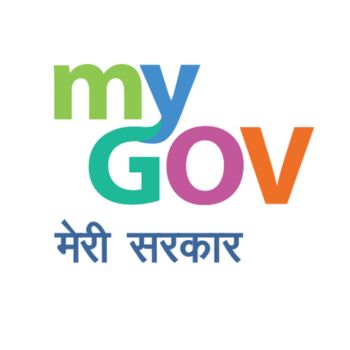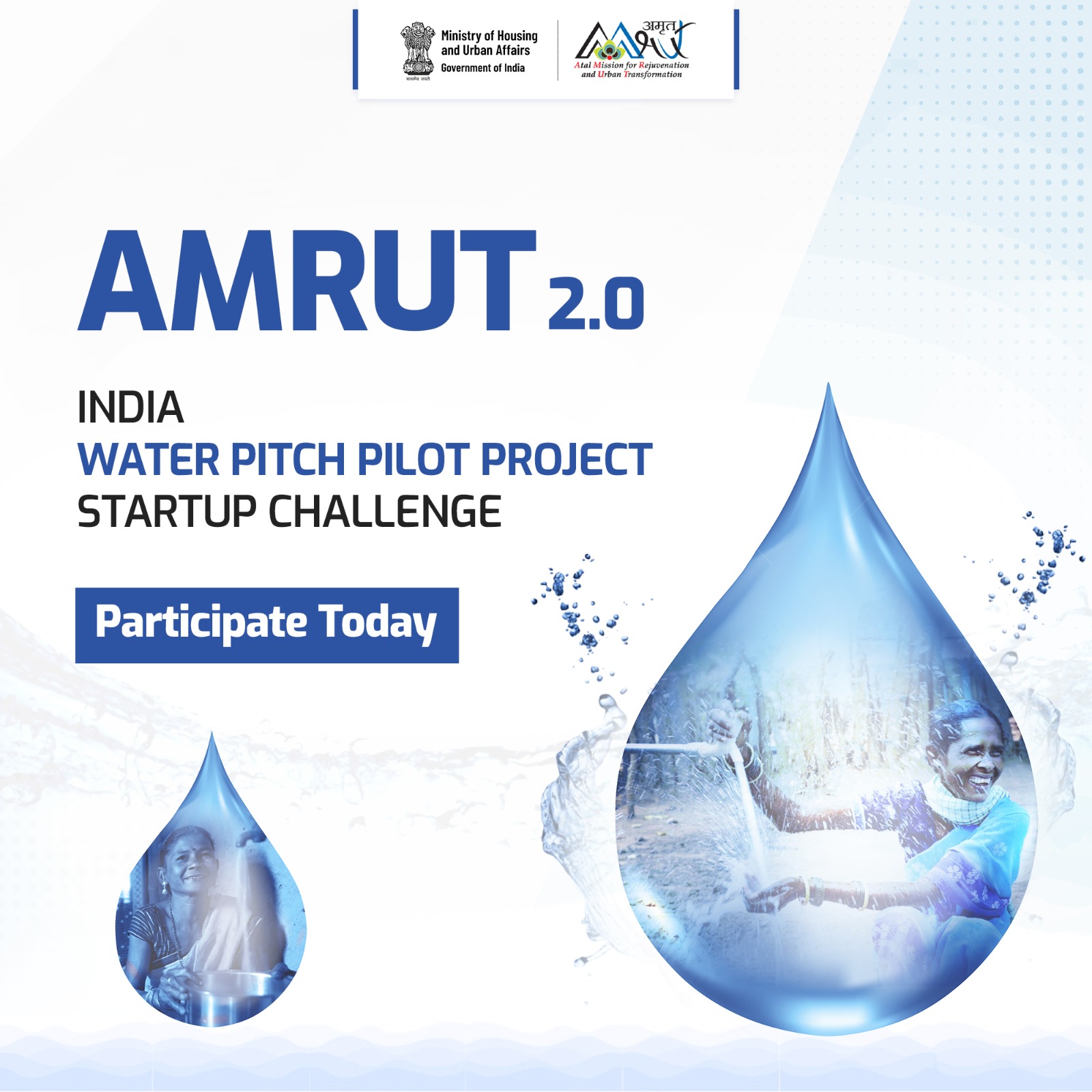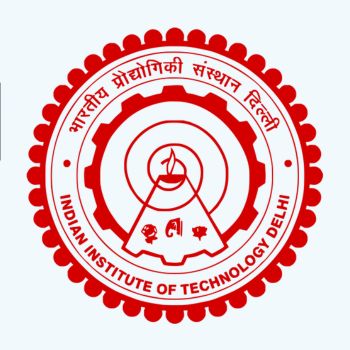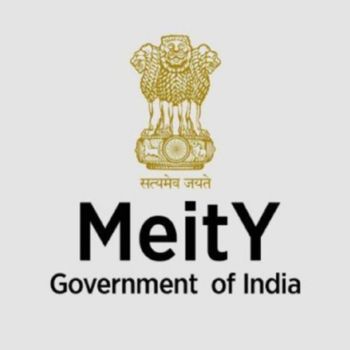Online applications for GATE 2024 will be out soon… Check the eligibility, syllabus and other details related to GATE 2024 below!
About GATE 2024
Graduate Aptitude Test in Engineering (GATE) is a national-level exam that primarily tests the comprehensive understanding of various undergraduate subjects in Engineering/ Technology/ Architecture/ Science/ Commerce/ Arts. GATE 2024 will be conducted by IISc Bangalore and seven IITs (IIT Bombay, IIT Delhi, IIT Guwahati, IIT Kanpur, IIT Kharagpur, IIT Madras, IIT Roorkee), on behalf of the National Coordination Board – GATE, Department of Higher Education, Ministry of Education (MoE), Government of India (GoI).
Qualified GATE score can be used for seeking admission and/or financial assistance to : (i) Master’s programs and direct Doctoral programs in Engineering/ Technology/ Architecture/ Science/ Commerce/ Arts; and (ii) Doctoral programs in relevant branches of Arts and Science, in the institutions supported by the MoE and other Government agencies. GATE score is also used by some colleges and institutions for giving admission to students without MoE scholarships/assistantships. Further, many Public Sector Undertakings (PSUs) have been using the GATE score in their recruitment process.
GATE 2024 Notification & Exam Date
IISc Bangalore will release the final GATE 2024 notification and exam dates in July 2023.
GATE 2024 Eligibility Criteria
A candidate who is currently studying in the 3rd or higher years of any undergraduate degree program OR has already completed any government-approved degree program in Engineering/ Technology/ Architecture/ Science/ Commerce/ Arts is eligible for appearing in the GATE 2024 exam.
| Degree / Program | Qualifying Degree / Examination | Description of Eligible Candidates |
|---|---|---|
| B.E. / B.Tech. / B. Pharm. | Bachelor’s degree in Engineering / Technology (4 years after 10+2 or 3 years after B.Sc. / Diploma in Engineering / Technology) | Currently in the 3rd year or higher or already completed |
| B. Arch. | Bachelor’s degree in Architecture (5-year course) / Naval Architecture (4-year course) / Planning (4-year course) | Currently in the 3rd year or higher or already completed |
| B.Sc. (Research) / B.S. | Bachelor’s degree in Science (Post-Diploma / 4 years after 10+2) | Currently in the 3rd year or higher or already completed |
| Pharm. D. (after 10+2) | 6 years degree program, consisting of internship or residency training, from the third year onwards | Currently in the 3rd/ 4th/ 5th/ 6th year or already completed |
| M.B.B.S. / B.D.S. / B.V.Sc. | Degree holders of M.B.B.S. / B.D.S. / B.V.Sc and those who are in the 5th/ 6th/ 7th semester or higher semester of such programme. | 5th/ 6th/ 7th or higher semester or already completed |
| M. Sc. / M.A. / MCA or equivalent | Master’s degree in any branch of Arts / Science / Mathematics / Statistics / Computer Applications or equivalent | Currently in the first year or higher or already Completed |
| Int. M.E. / M.Tech. (Post-B.Sc.) | Post-B.Sc Integrated Master’s degree programs in Engineering / Technology (4-year program) | Currently in the 1st/ 2nd/ 3rd/ 4th year or already completed |
| Int. M.E. / M.Tech. / M.Pharm or Dual Degree (after Diploma or 10+2) | Integrated Master’s degree program or Dual Degree program in Engineering / Technology (5-year program) | Currently in the 3rd/ 4th/ 5th year or already completed |
| B.Sc. / B.A. / B.Com. | Bachelor’s degree in any branch of Science / Arts / Commerce (3-year program) | Currently in the 3rd year or already completed |
| Int. M.Sc. / Int. B.S. / M.S. | Integrated M.Sc. or 5-year integrated B.S.-M.S. program | Currently in the 3rd year or higher or already completed |
| Professional Society Examinations (equivalent to B.E. / B.Tech. / B.Arch.) | Bachelor’s degree in Architecture (5-year course) / Naval Architecture (4-year course) / Planning (4-year course) | B.E. / B.Tech. / B.Arch. equivalent examinations of Professional Societies, recognized by MoE / UPSC / AICTE (e.g. AMIE by the Institution of Engineers-India, AMICE by the Institute of Civil Engineers-India and so on) |
| B.Sc. (Agriculture, Horticulture, Forestry) | 4-years program | Currently in the 3rd/ 4th year or already completed |
GATE 2024 Papers
GATE 2023 will be conducted for 29 papers. The table shows the list of papers with codes. Please click the link in Paper/Code to download the syllabus.
A candidate is allowed to appear either in ONE or UP TO TWO papers of the GATE 2024 examination. However, a candidate is only allowed to select the second paper from the pre-defined Two Paper Combination list.
| Code of the First (Primary) Paper | Codes of Papers Allowed as The Second Paper | Code of the First (Primary) Paper | Codes of Papers Allowed as The Second Paper |
|---|---|---|---|
| AE | CE, ME, XE | GG | GE |
| AG | CE | IN | BM, EC, EE, ME |
| AR | CE, GE | MA | CS, PH, ST |
| BM | BT, IN | ME | AE, IN, NM, PI, XE |
| BT | BM, XL | MT | XE |
| CE | AE, AG, AR, ES, GE, NM, XE | NM | CE, ME |
| CH | ES, PE, XE | PE | CH |
| CS | EC, GE, MA, PH, ST | PH | CS, EC, EE, MA, XE |
| CY | XE, XL | PI | ME, XE |
| EC | CS, EE, IN, PH | ST | CS, MA, XH |
| EE | EC, IN, PH | XE | AE, CE, CH, CY, ME, MT, PH, PI |
| ES | CE, CH, GE | XH | ST |
| EY | XL | XL | BT, CY, EY |
| GE | AR, CE, CS, ES, GG |
Note: Candidates opting to appear in TWO subject papers must have a primary choice of paper as their default choice. The second choice of paper has to be chosen from the allowed combinations given in the Table above. Combinations other than the listed ones are NOT allowed. Under unforeseen circumstances, certain combinations may be removed from the list in the above Table at a later date. In such cases, the fee paid towards the second paper will be refunded to the candidates.
Also note that the examination centre of a candidate for the second paper may be different (but in the same city) from that for the first paper due to the infrastructure and scheduling constraints. GATE 2023 is NOT liable for any legal obligations related to this issue.
GATE Syllabus 2024
GATE Syllabus CSE 2024
Section 1: Engineering Mathematics
- Discrete Mathematics: Propositional and first-order logic. Sets, relations, functions, partial orders and lattices. Monoids, Groups. Graphs: connectivity, matching, colouring.
- Combinatorics: counting, recurrence relations, generating functions.
- Linear Algebra: Matrices, determinants, a system of linear equations, eigenvalues and eigenvectors, LU decomposition.
- Calculus: Limits, continuity and differentiability. Maxima and minima.
- Mean value theorem Integration.
- Probability and Statistics: Random variables. Uniform, normal, exponential, Poisson and binomial distributions.
- Mean, median, mode and standard deviation. Conditional probability and Bayes theorem.
- Computer Science and Information Technology
Section 2: Digital Logic
- Boolean algebra. Combinational and sequential circuits. Minimization.
- Number representations and computer arithmetic (fixed and floating point).
Section 3: Computer Organization and Architecture
- Machine instructions and addressing modes. ALU, data path and control unit. Instruction pipelining, pipeline hazards. Memory hierarchy: cache, main memory and secondary storage; I/O interface (interrupt and DMA mode).
Section 4: Programming and Data Structures
- Programming in C. Recursion. Arrays, stacks, queues, linked lists, trees, binary search trees, binary heaps, graphs.
Section 5: Algorithms
- Searching, sorting, hashing. Asymptotic worst-case time and space complexity.
- Algorithm design techniques: greedy, dynamic programming and divide‐and‐conquer.
- Graph traversals, minimum spanning trees, shortest paths
Section 6: Theory of Computation
- Regular expressions and finite automata. Context-free grammar and push-down automata.
- Regular and context-free languages, pumping lemma. Turing machines and undecidability.
Section 7: Compiler Design
- Lexical analysis, parsing, syntax-directed translation. Runtime environments. Intermediate code
- generation. Local optimisation, Data flow analyses: constant propagation, liveness analysis, common subexpression elimination.
Section 8: Operating System
- System calls, processes, threads, inter‐process communication, concurrency and synchronization. Deadlock.
- CPU and I/O scheduling.
- Memory management and virtual memory.
- File systems.
Section 9: Databases
- ER‐model. Relational model: relational algebra, tuple calculus, SQL. Integrity constraints, normal forms.
- File organization, indexing (e.g., B and B+ trees). Transactions and concurrency control.
Section 10: Computer Networks
- Concept of layering: OSI and TCP/IP Protocol Stacks; Basics of the packet, circuit and virtual circuit switching; Data link layer: framing, error detection, Medium Access Control, Ethernet bridging;
- Routing protocols: shortest path, flooding, distance vector and link state routing; Fragmentation and IP addressing, IPv4, CIDR notation, Basics of IP support protocols (ARP, DHCP, ICMP),
- Network Address Translation (NAT); Transport layer: flow control and congestion control, UDP, TCP, sockets; Application layer protocols: DNS, SMTP, HTTP, FTP, Email.
Other Stream Syllabus Link
Each GATE 2024 paper is for total 100 marks, General Aptitude (GA) is common for all papers (15 marks) and rest of the paper covers the respective syllabus (85 marks).
| XE Paper Sections | Code | XH Paper Sections | Code | XL Paper Sections | Code |
|---|---|---|---|---|---|
| Engineering Mathematics (Compulsory) (15 marks) | A | Reasoning and Comprehension (Compulsory) (25 marks) | B1 | Chemistry (Compulsory) (25 marks) | P |
| Any TWO optional Sections (2×35 = 70 marks) | Any ONE optional Section (60 marks) | Any TWO optional Sections (2×30 = 60 marks) | |||
| Fluid Mechanics | B | Economics | C1 | Biochemistry | Q |
| Materials Science | C | English | C2 | Botany | R |
| Solid Mechanics | D | Linguistics | C3 | Microbiology | S |
| Thermodynamics | E | Philosophy | C4 | Zoology | T |
| Polymer Science and Engineering | F | Psychology | C5 | Food Technology | U |
| Food Technology | G | Sociology | C6 | ||
| Atmospheric and Oceanic Sciences | H | ||||
- Multi-sessional papers: The candidate will be assigned to appear only in one of the sessions for the papers running in multiple sessions.
- Candidates must familiarize themselves with the paper code as it is required both during application and examination.
- Each candidate should fill out ONLY ONE application. If they wish to appear in the second paper (from the two-paper combination), they can add the respective paper to their original application. In case of Multiple applications, only one will be accepted and the remaining applications will be rejected without any refund for the paid fee.
GATE 2024 Question Pattern
| Particulars | Details |
|---|---|
| Examination Mode | For a wrong answer chosen in an MCQ, there will be a negative marking. For 1-mark MCQ, 1/3 mark will be deducted for a wrong answer. Likewise, For 2-mark MCQ, the 2/3 mark will be deducted for a wrong answer. No negative marking for Incorrect answer(s) to MSQ or NAT questions. |
| Duration | 3 Hours* |
| Number of Subjects (Papers) | 29 |
| Sections | General Aptitude (GA) + Candidate’s Selected Subject(s) |
| Type of Questions | (a) Multiple Choice Questions (MCQ) (b) Multiple Select Questions (MSQ) and/or (c) Numerical Answer Type (NAT) Questions |
| Questions for testing these abilities | (a) Recall (b) Comprehension (c) Application (d) Analysis & Synthesis |
| Number of Questions | 10 (GA) + 55 (subject) = 65 Questions |
| Distribution of Marks in all Papers EXCEPT papers AR, CY, EY, GG, MA, PH, ST, XH and XL | General Aptitude: 15 Marks + Engineering Mathematics**: 13 Marks + Subject Questions: 72 Marks = Total: 100 Marks (**XE includes Engineering Mathematics section XE-A of 15 Marks) |
| Distribution of Marks in papers AR, CY, EY, GG, MA, PH, ST, XH and XL | General Aptitude: 15 Marks + Subject Questions: 85 Marks = Total: 100 Marks |
| Marking Scheme | Questions carry 1 mark and 2 marks |
| Negative Marking | For a wrong answer chosen in an MCQ, there will be a negative marking. For 1-mark MCQ, 1/3 mark will be deducted for a wrong answer. Likewise, For a 2-mark MCQ, the 2/3 mark will be deducted for a wrong answer. No negative marking for Incorrect answer(s) to MSQ or NAT questions. |
| Paper Code | General Aptitude (GA) Marks | Subject Marks | Total Marks | Total Time (Minutes) |
|---|---|---|---|---|
| AE, AG, BM, BT, CE, CH, CS, CY, EC, EE, ES, EY, IN, MA, ME, MN, MT, NM, PE, PH, PI, ST, TF | 15 | 85 | 100 | 180 |
| AR [Part A + Part B1 or B2 (B1: Architecture or B2: Planning)] B1 or B2 can be selected during Exam. | 15 | 60 + 25 | 100 | 180 |
| GE [Part A + Part B1 or B2 (B1 – Surveying and Mapping or B2 -Image Processing and Analysis)] B1 or B2 can be selected during the Exam. | 15 | 55 + 30 | 100 | 180 |
| GG [Part A + Part B] (Section 1: Geology or Section 2: Geophysics) | 15 | 25 + 60 | 100 | 180 |
| XL (Section P + Any TWO Sections) Sections can be selected during the Exam. | 15 | 15 + (2 x 35) | 100 | 180 |
| XH (Section B1 + Any ONE Section) | 15 | 25 + 60 | 100 | 180 |
| AR [Part A + Part B1 or B2 (B1: Architecture or B2: Planning)] B1 or B2 can be selected during the Exam. | 15 | 25 + (2 x 30) | 100 | 180 |
*PwD candidates with benchmark disability are eligible for the compensatory time of 20 minutes per hour. Thus, they will get one hour extra for a three hours examination.
GATE 2024 Application Form
Candidates will be able to fill out the application form for GATE 2024 online mode only. While filling out the GATE 2024 registration form, aspirants should ensure that the name of the candidate in the GATE application form 2024 must exactly the same as that in the valid photo ID, which the candidate must produce in original while appearing for GATE 2024 examination at the centre.
Steps to Fill GATE Registration Form 2024
- The first step is the registration of IIT GATE 2024. Candidates have to register for the GATE exam 2024 through the GOAPS portal. The GATE 2024 registration will include details like the Candidate’s first, middle name, and surname, Valid Email ID, Country of residence, Mobile Number, and Password. After adding the details, candidates have to enter the OTP received on the mobile number and registered Email ID. A unique enrollment ID will be allotted to the successfully registered candidates.
- Once registered, candidates have to complete the Graduate Aptitude Test in Engineering 2024 application form with details like Personal details, Academic details, communication details, a paper appearing for, exam centre details, photo ID proof, Signature and category certificate (for reserved categories).
- Next, upload scanned images of photos, signatures, and other documents as per the specification.
- Finally, candidates have to pay the GATE application fee in online mode.
Required Documents
- Data Requirement for Filling the Online Application Form in GATE 2024
- Personal information (name, date of birth, personal mobile number, parent’s name, parent’s mobile number, etc.).
- Please note that the name of the candidate in the application form must exactly be the same as that in the valid photo ID, which the candidate MUST produce in original while appearing for the GATE-2023 examination at the centre.
- GATE 2023 scorecard will be issued as per the name entered in the application form.
- Prefix/title such as Mr / Shri / Dr / Mrs / Smt / Prof / Capt / Maj / Lt / Col / Er / Ar, etc. MUST NOT be used before the name.
- Address for Communication (including PIN code).
- Eligibility degree details.
- GATE paper(s) / subjects and their codes in which the candidate wishes to appear.
- THREE Choices of GATE examination cities (from the same zone).
- Net banking/debit card/credit card / UPI / wallet details for fee payment.
- Personal information (name, date of birth, personal mobile number, parent’s name, parent’s mobile number, etc.).
- Documents Required for Filling the Online Application Form in GATE 2024
- A high-quality image of the candidate’s photograph conforming to the requirements specified
- A high-quality image of the candidate’s signature conforming to the requirements specified
- Scanned copy of Category (SC/ST) certificate in pdf format (if applicable).
- Scanned copy of PwD Certificate in pdf format (if applicable).
- Scanned copy of Certificate of Dyslexia (if applicable) in pdf format.
- Scanned copy of any of the valid photo Identity documents: Aadhar-UID (preferable), Passport, PAN Card, Voter ID and Driving License (should have the Name, Date of birth of the candidate and unique Photo ID number. This must be carried in the original to the examination hall for verification)
GATE 2024 Application Fees
| Category | Amount | Late Fees |
| Male (General, OBC and Others) | Rs. 1,700 | Rs. 2,200 |
| SC/ ST/ PwD | Rs. 850 | Rs. 1,350 |
| Female candidates | Rs. 850 | Rs. 1,350 |
GATE 2024 Previous Years Question Papers
Click here to view the previous year’s question papers of GATE 2024.











